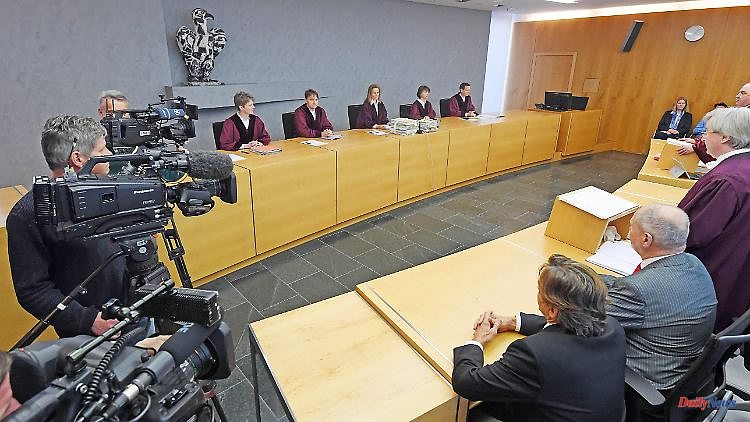A man accuses a doctor of unnecessarily prolonging the suffering of his father, who is suffering from dementia, and demands 150,000 euros in compensation from a doctor. He already failed at the Federal Court of Justice, now Karlsruhe is also commenting on the case.
A man wants compensation for pain and suffering from a doctor who, from his point of view, unnecessarily prolonged the suffering of his father, who was suffering from dementia, at the end of his life - now he has also failed at the Federal Constitutional Court. The judges in Karlsruhe did not accept his constitutional complaint for a decision, as the decision shows. The sensational case had gone through the instances up to the Federal Court of Justice (BGH) a few years ago.
The father, who died in 2011, had spent the last years of his life in a Munich nursing home - unable to move in bed, unable to communicate, with pain and fever. The son, who emigrated to the USA, thought it was pointless torture. In his opinion, the doctor should have stopped the tube feeding at some point and let the father die. As an heir, he wanted at least 100,000 euros in compensation and more than 52,000 euros for care costs. However, the BGH had ruled out such liability in principle. "No third party is entitled to judge the value of life," said the presiding judge at the verdict in April 2019.
It is therefore forbidden to regard continued life as damage - even if it is suffering. The son had filed a constitutional complaint against this verdict. Without success: The judges refer to their fundamental judgment on assisted suicide from February 2020 and the right to a self-determined death enshrined therein. The BGH made life "absolute in a way that could raise doubts as to whether the right to self-determination is given sufficient attention," they write. "Therefore, it cannot be ruled out from the outset that a life-sustaining measure that is carried out against the will of the person concerned can have legal liability consequences."
In this case, however, the actual or presumed will of the deceased could not be determined. With the father suffering from dementia, it was unclear whether and for how long he would have wanted the probe placed in 2006. He had left no written treatment instructions in a living will, and he was later unable to express himself.












